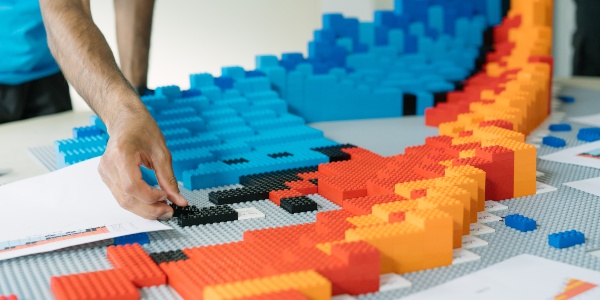
Post-16 Nuclear Masterclass
This event has now finished.
Event details
Join the Binding Blocks team to explore cutting-edge research in nuclear physics.
- 6 week programme with 3-5 hours content per week.
- Work at your own pace, in the classroom or at home.
- Weekly live webinars with leading experts from around the world.
- Get help and find out more through an online question forum.
- Complete all activities to receive a Certificate of Participation, awarded by the University of York.
This programme is suitable for students aged 16-19 studying Physics (AS or A Levels, IB, Highers or Advanced Highers, or equivalent).
Module 1: Energy and Decay
Explore the Nuclear Chart, showing all the isotopes discovered so far. Refresh your understanding of the different decay types, follow nuclear decay chains, explore the concept and applications of binding energy, and investigate half-lives. This first module will give you all the building blocks you need to explore Nuclear Physics in more detail.
Module 2: Experimental Nuclear Physics
From historic experiments that revealed the structure of the atom, to cutting-edge detectors and particle accelerators, in this module you'll explore how discoveries in Nuclear Physics have been made, and get a glimpse of some of the exciting research that's currently being undertaken around the world. Take part in virtual tours of National Laboratories, find out about underground research facilities, and investigate detector science through online simulations.
Module 3: Nuclear Astrophysics
Investigate the life cycle of stars - from fusion taking place in main sequence stars, to the nuclear reactions happening during stellar explosions. Discover the origins of the elements and find out about the roles of different isotopes in these processes. Investigate a model of the nucleus using an interactive simulation, and use this to explore the size and density of neutron stars.
Module 4: Fusion Technology
In this module we bring nuclear fusion, the process that powers the stars, down to Earth. Find out about this potential method of power generation that could solve the energy crisis. From tokamaks to laser-driven fusion, discover the interface between nuclear and plasma physics and explore the devices being used to create temperatures more than ten times hotter than the centre of the Sun.
Module 5: Medical Physics
Explore Nuclear Medicine - from imaging techniques to treatment of diseases such as cancer. Discover what medical physicists do; find out how PET scanners work, and how quantum entanglement can make these more effective; and use computer modelling to investigate proton-beam therapy and optimise treatment.
Module 6: Particle Physics meets Nuclear Physics
This is an opportunity to delve inside the nucleus. Protons and neutrons are both examples of hadrons - particles that are composed of quarks and therefore feel the strong force. In this module, discover some of the more exotic quark combinations and newly discovered particles that may give us the answer to questions such as 'What is dark matter?'.
If you have any questions about this event, please don't hesitate to contact physics-bindingblocks@york.ac.uk.
